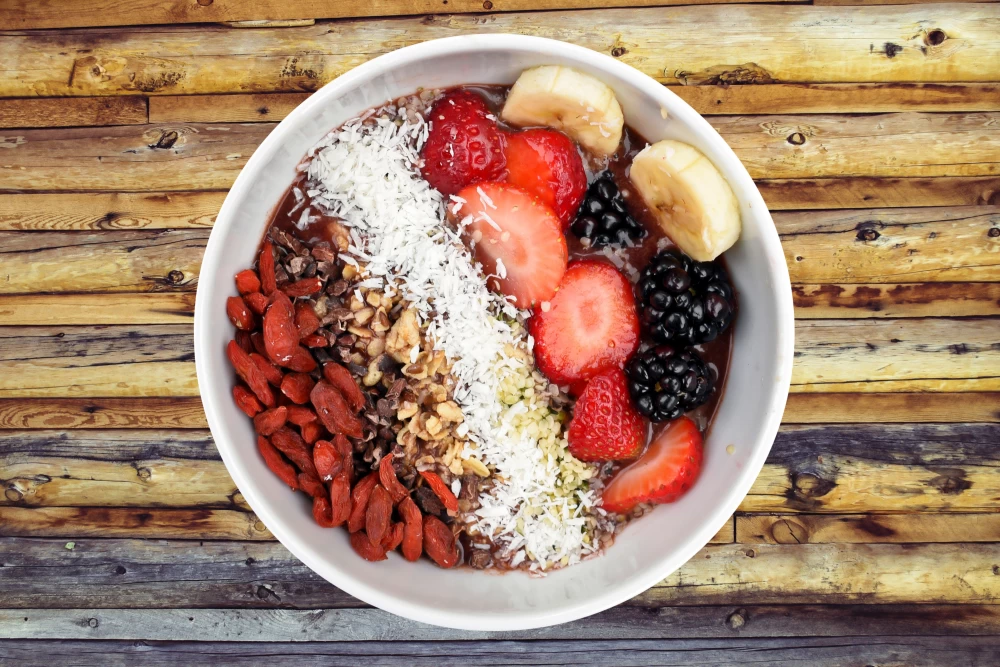
- 6th December 2023
Table of Contents
The concept of breakfast being the most important meal of the day has been ingrained in our culture, but is it backed by science? This blog delves into the various perspectives on breakfast, examining the research behind its purported benefits and challenging the conventional wisdom that has made it a dietary cornerstone. Join us on a journey to uncover the truths and myths surrounding breakfast, as we question whether it truly holds the key to a healthier start each morning.
The Breakfast Debate
In the world of nutrition, there is a lot of mythology that says breakfast is the most important meal of the day. Some people say that eating a balanced breakfast gets our metabolism going, gives us important nutrients, and sets a good mood for the rest of the day. But a closer look at scientific research shows a more complex picture, which challenges the idea that breakfast is the same for everyone.
Metabolic Kickstart: Truth or Myth?
One main reason why breakfast is thought to be important is that it is said to get our metabolism going. Some people say that eating breakfast helps our metabolisms work better, which means we burn more calories all day. Although it is true that our metabolism speeds up after we eat, the amount of this effect may be different for each person.
How breakfast affects your metabolism depends on things like the type of food you eat, when you eat it, and your own metabolism. Studies show that for some people, eating a breakfast might really speed up their metabolism. For others, spreading their daily caloric intake out over fewer, larger meals may have the same effect. The key is to know your body and how it works metabolically.
Boost in nutrients or dietary dilemma?
People who like breakfast point out that it helps the body's metabolism and gives you nutrients that are important for your overall health. It is thought that a balanced breakfast with a mix of carbs, protein, and healthy fats could give the body the energy and nutrients it needs to start thinking clearly and moving around.
The problem, though, is the quality of the breakfast that is eaten. A sugary cereal or pastry might give you a quick energy boost, but it doesn't give you the long-term fuel you need to feel full and stay healthy. A breakfast that includes whole grains, lean proteins, and fruits, on the other hand, can help you eat a healthy, balanced diet.
How to Lose Weight: What's the Big Deal About Breakfast?
Another thing that is often talked about in relation to breakfast is how it might help you control your weight. Some studies suggest that eating a healthy breakfast in the morning may help you control your hunger and keep you from eating too much later in the day. This could be because breakfast keeps blood sugar levels steady, preventing the highs and lows that can make you want to eat.
There is, however, conflicting evidence. For example, some studies suggest that the timing of meals, including breakfast, may not be a major factor in how well everyone controls their weight. A person's overall eating habits, total caloric intake, and metabolism are just a few of the many complex factors that go into managing weight.

Brainpower and Breakfast for Cognitive Function
Aside from the health benefits, people have also been interested in how breakfast affects brain function and school performance, especially in kids and teens. Some studies show that eating breakfast in the morning may improve memory, focus, and overall brain function, all of which are important for learning.
But the research landscape in this area is complicated. For some people, breakfast may help their brains work better, but the effects may be different depending on age, personal differences, and the type of breakfast eaten. It seems that a healthy, balanced diet spread out over the course of the day is more important for brain health than the timing of specific meals.
Breaking Breakfast Habits with Intermittent Fasting
In the past few years, the popularity of intermittent fasting has made people question the idea that breakfast is an important part of every day. Intermittent fasting supporters say that planning times to not eat followed by set times to eat can have many health benefits, such as better metabolic health and weight management.
Even though intermittent fasting might not require a typical breakfast, that doesn't mean that nutrition isn't important. It focuses on the timing of meals instead, so people can choose when to eat their calories based on their lifestyle and preferences.
Making breakfast fit the needs of each person
The argument about how important breakfast is ultimately shows how important it is to tailor nutrition to each person. It's not possible to use the same method for everyone. What works for one person might not be right for someone else. Breakfast should be a part of everyone's daily routine, but the exact role should depend on their age, level of activity, food preferences, and overall health.
In terms of overall nutrition, how important breakfast is varies from person to person. While it may have benefits like speeding up your metabolism, providing nutrients, possibly helping you lose weight, and improving your brain function, not everyone experiences these benefits.
For some, a healthy breakfast is an important part of their daily routine because it gives them energy and important nutrients. Others may find that different ways of eating, like intermittent fasting, fit their goals and way of life better. The key is to make choices that are thoughtful, personal, and take into account each person's needs and preferences.
Instead of rigidly believing that breakfast is an absolute nutritional necessity, people should focus on developing eating habits that are good for their health and well-being as a whole. No matter what kind of food you eat—a hearty breakfast, strategic intermittent fasting, or something else—the main goal should be to nourish the body in a way that fits your goals and supports your long-term health. It looks like the debate about breakfast isn't about getting rid of or downgrading this morning habit. Instead, it's about taking a more nuanced, personal look at what breakfast means to us every day.














